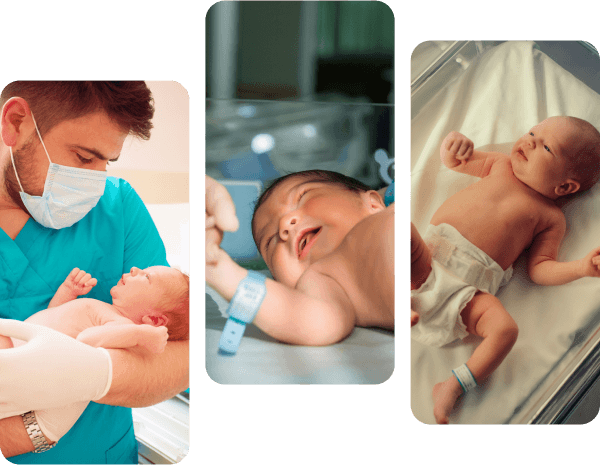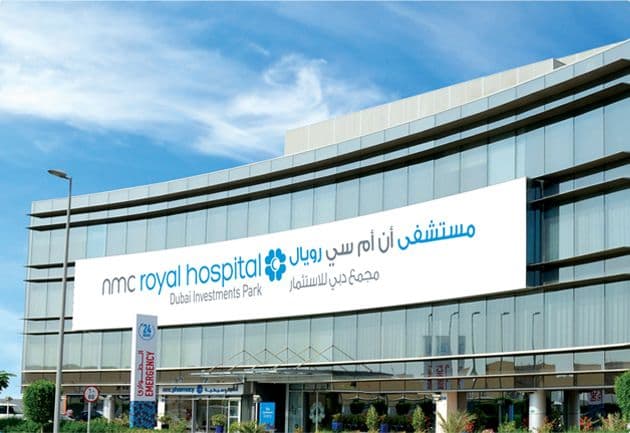
High Risk Pregnancy and Foetal Medicine
Pregnancy is an exciting journey for the parents. However, it could be a concern for women with high-risk pregnancies, considering her own health and the health of the baby.

What is high-risk pregnancy?
A high-risk pregnancy is one in which the mother, her foetus, or both are at higher risk for health problems during pregnancy or labor than in a typical pregnancy. It threatens the health or life of the mother or her foetus.
Some pregnancies become high risk as they progress, while some women are at increased risk for complications even before they get pregnant for a variety of reasons. For example, women who have chronic health problems, such as high blood pressure or diabetes, who become pregnant may be considered to have high-risk pregnancies, even if the condition is well controlled. Lifestyles and personal habits can place the mother, her baby or both at a higher risk for complications during the antenatal period or at delivery.
Women whose pregnancies are considered high risk may need specialised care or treatment to have healthy pregnancies and deliveries. The specific type of care needed will depend on the specific risk factors, as well as the overall health of the mother and the foetus. Early and regular prenatal care helps many women to have healthy pregnancies and deliveries without complications.
Women with high-risk pregnancies should receive care from a special team of health care providers to ensure the best possible outcomes.
Foetal Medicine
Foetal medicine includes the assessment of foetal growth and wellbeing during pregnancy, the maintenance of foetal health and the diagnosis of foetal illnesses and abnormalities. Our physicians are trained to provide the highest standard of care for mothers and babies during this delicate time.
Foetal medicine can be divided into two branches;
- Prenatal diagnosis - The detection of abnormal conditions of the foetus
- Foetal treatment - Interventional steps that are taken after identifying an unwell foetus
Prenatal Diagnosis
- Screening
- Non-Invasive Screening and Diagnostic Testing
- Invasive Diagnostic Testing
Foetal Treatment
Foetal treatment is the “operative branch” of foetal medicine. It includes a series of interventions utilized with the aim of achieving foetal wellbeing. These interventions include medical, non-invasive methods and surgical procedures.
Generally, medical intervention includes the administration of medication to the mother. The medication will cross through the placenta and enter the blood circulation of the foetus. An example of medical intervention is a foetus who is diagnosed with arrhythmia, such as atrial flutter.
An intrauterine transfusion provides blood to an Rh-positive foetus when foetal red blood cells are being destroyed by Rh antibodies. A blood transfusion is given to replace foetal red blood cells that are being destroyed by the Rh-sensitized mother's immune system. This treatment is meant to keep the foetus healthy until he or she is mature enough to be delivered.
Transfusions can be given through the foetal abdomen or, more commonly, by delivering the blood into the umbilical vein or artery. Umbilical cord vessel transfusion is the preferred method, because it permits better absorption of blood and has a higher survival rate than does transfusion through the abdomen.
Neonatal Service
Neonatal Service at NMC Royal Hospital, DIP is part of the Maternity and Child Health Service, which provides the highest quality health care for your child, beginning from the child birth and continuing through infancy. The hospital offers baby friendly and family-centred care and offer the optimal neonatal care to every baby from routine neonatal care to full life support and convalescent care. The members of the medical team are highly dedicated and involved in the care of the babies. The staff are highly experienced and well trained, including Neonatologists, Paediatricians and Neonatal nursing personnel. The team is supported by services of super specialists like Surgeons, Cardiologists, Neurologists, Ophthalmologist etc.
Neonatal unit is equipped with the state-of-the-art facilities and is supported by round the clock laboratory and imaging services and basic neonatal care (Nursery/Postnatal Word), level 2 Neonatal Intensive Care (Special Care Baby Unit -SCBU), level 3 Neonatal Intensive Care Unit (NICU), 24 hour Emergency section and Well Baby Clinic.
The NICU provides exceptional care for premature babies from 23 weeks onwards as well as for sick term babies with complex medical and surgical problems, and long-term, technology-dependent conditions. There are specialised treatments for all kinds of congenital and acquired conditions. The NICU provide developmentally supportive care to minimize the stress for our little patients and enhance their physiological stability, protect their sleep rhythms and promote their growth and maturation.
A dedicated team in Well Baby Clinic also offers preventive and primary care such as immunizations and well-baby visits, growth and development follow up, lactation support, management feeding and weight problems, ongoing care for chronic illnesses and long-term care for high-risk infants. All NICU graduated babies are followed in Well Baby Clinic for a minimum 1 year of age.

Services offered:
- Antenatal consultations for high risk pregnancy
- Neonatal resuscitation in delivery room/operation room
- Surfactant therapy for infants with premature lungs
- Total parenteral nutrition with central arteria venous line insertion
- Cardiovascular support
- Blood transfusion and exchange transfusion
- Phototherapy
- Total body cooling therapy
- Monitoring of brain electrical activity (continuous aEEG and standard EEG)
- Cardiac & hemodynamic monitoring (Echocardiography (ECHO), Electrocardiography (ECG), invasive blood pressure monitoring) with central arterial line insertion
- Neonatal surgery program
- Neonatal imaging (cranial ultrasound (US), abdomen US, chest US and spinal US)
- Ophthalmology Services for ROP screening and laser treatment
- Neurodevelopmental/ Infant growth follow-up program with immunization
Neonatal conditions treated:
- Prematurity from 23 weeks onwards
- Intra uterine growth retardation/ restriction
- Complex birth defects
- Neonatal infections (sepsis, pneumonia, urinary infections, meningitis, umbilical and skin infection)
- Respiratory problems in neonatal period (respiratory distress syndrome, meconium aspiration syndrome, neonatal pneumonia, persistent pulmonary hypertension, pneumothorax)
- Chronic lung disease management and follow-up clinic
- Cardiac failure, arrhythmias and congenital anomalies managed medically
- Neonatal jaundice
- Neonatal anaemia, thrombocytopenia and bleeding disorders
- All neonatal surgical conditions
- Neurological/neurosurgical conditions (birth asphyxia, neonatal seizure, stroke, intracranial haemorrhage, hydrocephalus, neural tube defects and brain malformations, congenital neuromuscular diseases)
- Gastrointestinal disorders (necrotizing enterocolitis, gastroesophageal reflux, hypertrophic pyloric stenosis, intussusception, meconium ileus, meconium plug syndrome)
- Renal disorders (urinary infection, acute renal failure) and congenital anomalies
- Congenital anomalies
- Primary metabolic defects
- Genetic disorders and malformation
Doctors
Frequently Asked Questions

NMC Royal Hospital, DIP, Dubai
NMC Royal Hospital, Dubai Investments Park (DIP), one of the flagship hospitals of NMC Healthcare is a multi-specialty tertiary care hospital, located opposite the Green Community in DIP and easily accessible from Sheikh Mohammed Bin Zayed Road (Old Emirates Road).


